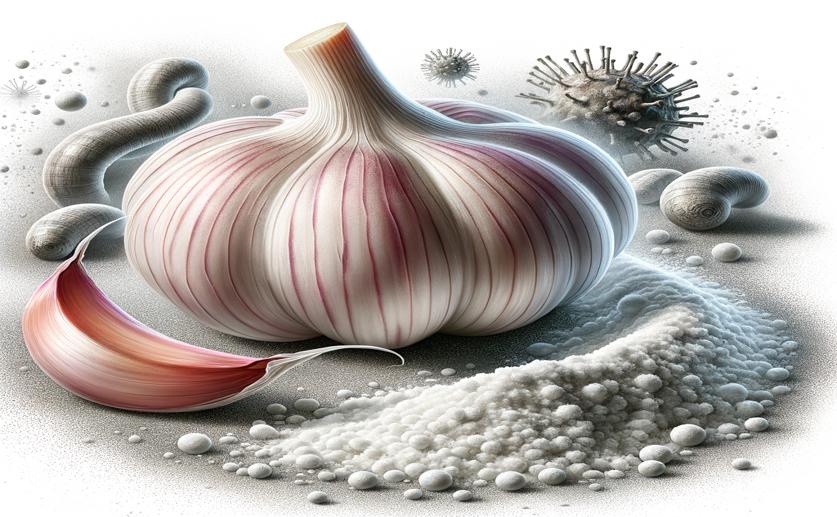
Garlic-Based Zinc Oxide Cure for Parasitic Infection
Jenn Hoskins
3rd April, 2024

Image Source: Natural Science News, 2024
Key Findings
- In Egypt, garlic-derived nanoparticles reduced Cryptosporidium in mice by up to 83%
- Treated mice showed less damage in intestines, liver, and lungs
- The nanoparticles increased antioxidants and decreased inflammation markers in mice
References
Main Study
1) Green synthesis of zinc oxide/Allium sativum nano-composite and its efficacy against murine cryptosporidiosis.
Published 1st April, 2024
https://doi.org/10.1002/jemt.24541
Related Studies
2) Anti-Cryptosporidium efficacy of Citrus sinensis peel extract: Histopathological and ultrastructural experimental study.
3) Zinc Oxide Nanoparticles as Potential Delivery Carrier: Green Synthesis by Aspergillus niger Endophytic Fungus, Characterization, and In Vitro/In Vivo Antibacterial Activity.
4) In vitro and in vivo Anti-Toxoplasma Effects of Allium sativum Essential Oil Against Toxoplasma gondii RH Strain.
5) Algal Extracts for Green Synthesis of Zinc Oxide Nanoparticles: Promising Approach for Algae Bioremediation.



 11th February, 2024 | Jim Crocker
11th February, 2024 | Jim Crocker